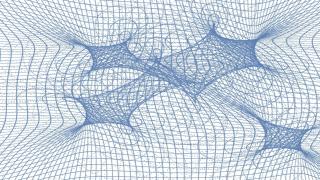Bibcode
Mediavilla, E.; Jiménez-Vicente, J.; Fian, C.; Muñoz, J. A.; Falco, E.; Motta, V.; Guerras, E.
Bibliographical reference
The Astrophysical Journal, Volume 862, Issue 2, article id. 104, 10 pp. (2018).
Advertised on:
8
2018
Journal
Citations
23
Refereed citations
21
Description
We find that the Fe III λλ2039-2113 spectral feature
in quasars appears systematically redshifted by amounts accountable
under the hypothesis of gravitational redshift induced by the central
supermassive black hole (BH). Our analysis of 27 composite spectra from
the BOSS survey indicates that the redshift and the broadening of the
lines in the Fe III λλ2039-2113 blend roughly follow
the expected correlation in the weak limit of Schwarzschild geometry for
virialized kinematics. Assuming that the Fe III UV redshift provides a
measure of \displaystyle \frac{{M}BH}}{R}
≤ft(\displaystyle \frac{{{Δ }}λ }{λ }≃
\displaystyle \frac{3}{2}\displaystyle
\frac{G}{{c}2}\displaystyle
\frac{{M}BH}}{R}\right) and using different estimates of the
emitting region size, R (either from gravitational microlensing,
reverberation mapping, or from the scaling of size with intrinsic quasar
luminosity), we obtain masses for ten objects that are in agreement
within uncertainties with previous mass estimates based on the virial
theorem. Reverberation mapping estimates of the size of the Fe III
λλ2039-2113 emitting region in a sample of objects
would be needed to confirm the gravitational origin of the measured
redshifts. Meanwhile, we present a tentative BH mass scaling
relationship based on the Fe III λλ2039-2113
redshift useful to measure the BH mass of one individual object from a
single spectrum.
Related projects

Relativistic and Theoretical Astrophysics
Introduction Gravitational lenses are a powerful tool for Astrophysics and Cosmology. The goals of this project are: i) to obtain a robust determination of the Hubble constant from the time delay measured between the images of a lensed quasar; ii) to study the individual and statistical properties of dark matter condensations in lens galaxies from
Evencio
Mediavilla Gradolph